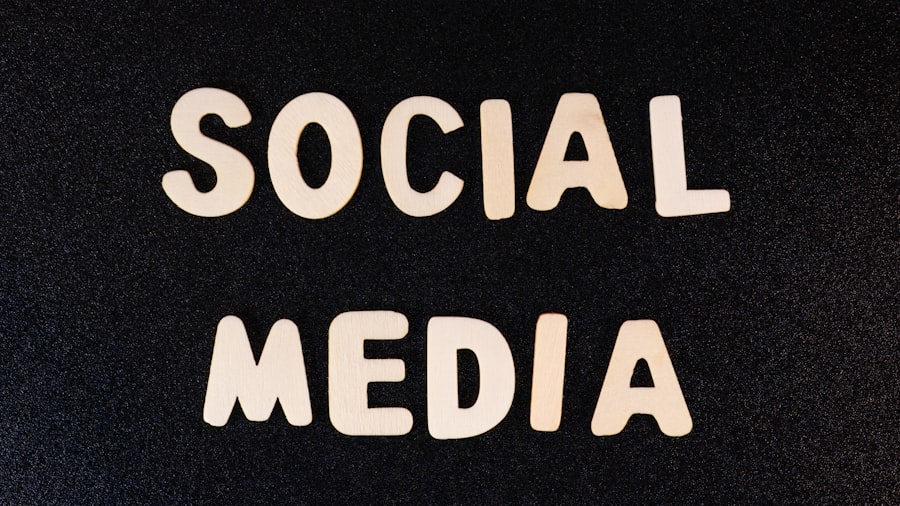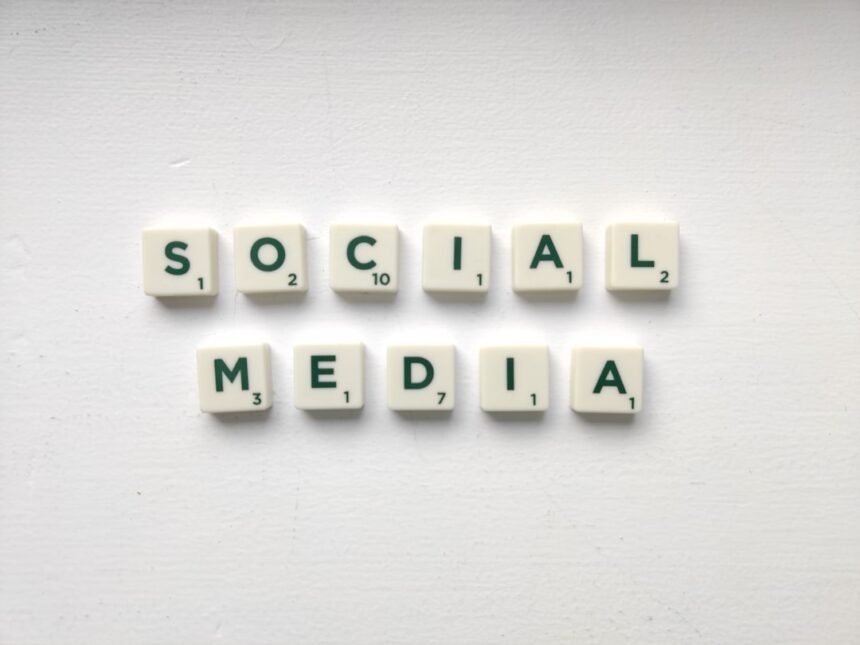In today’s digital age, social media has become an integral part of your daily life, especially during adolescence. You find yourself constantly connected to platforms like Instagram, Snapchat, and TikTok, where you share moments, thoughts, and experiences with friends and followers. While these platforms offer opportunities for connection and self-expression, they also present challenges that can significantly impact your self-esteem.
The way you perceive yourself can be heavily influenced by the curated images and narratives that flood your feeds, leading to a complex relationship between social media use and self-worth. As you navigate this landscape, it’s essential to understand how social media shapes your self-esteem. The constant exposure to idealized representations of life can create unrealistic standards that you may feel pressured to meet.
This article will explore various aspects of social media’s impact on adolescent self-esteem, including body image, comparison, cyberbullying, and the role of likes and comments. By examining these factors, you can gain insight into how to foster a healthier relationship with social media and enhance your self-esteem in the process.
Key Takeaways
- Social media can have a significant impact on adolescent self-esteem, body image, and identity development.
- Comparison and envy on social media can lead to negative effects on self-esteem, as individuals often compare themselves to unrealistic standards.
- Cyberbullying on social media can have a detrimental effect on self-esteem and mental health.
- The number of likes and comments on social media can influence an individual’s self-esteem, leading to a constant need for validation.
- FOMO (Fear of Missing Out) on social media can contribute to feelings of inadequacy and lower self-esteem.
The Impact of Social Media on Body Image
One of the most significant ways social media affects your self-esteem is through its impact on body image. You are likely bombarded with images of seemingly perfect bodies and lifestyles that can distort your perception of what is normal or desirable. These images often represent a narrow standard of beauty that is not only unrealistic but also unattainable for most people.
As you scroll through your feed, you may find yourself comparing your appearance to those of influencers or peers, leading to feelings of inadequacy and dissatisfaction with your own body. Moreover, the prevalence of photo editing apps and filters can exacerbate these issues. When you see friends or celebrities presenting themselves in a highly edited manner, it can create a false sense of reality that you might feel compelled to emulate.
This constant comparison can lead to negative body image, which is closely linked to low self-esteem. Understanding that these images are often curated and not reflective of real life is crucial in mitigating their impact on your self-worth. By recognizing the difference between reality and the idealized versions presented online, you can begin to cultivate a more positive body image.
Comparison and Envy on Social Media

The phenomenon of comparison is another critical aspect of how social media influences your self-esteem. As you scroll through posts showcasing the highlights of others’ lives—be it vacations, achievements, or relationships—you may find yourself measuring your own experiences against theirs. This tendency to compare can lead to feelings of envy and inadequacy, as you might feel that you are falling short in various areas of your life.
The curated nature of social media often means that people share only their best moments, creating a skewed perception of reality. This cycle of comparison can be detrimental to your mental health. When you focus on what others have that you don’t, it can foster a sense of discontentment and low self-worth.
You may start to believe that your life is less exciting or fulfilling than those you follow online. To combat this negative spiral, it’s essential to practice gratitude for your own experiences and achievements. By shifting your focus from comparison to appreciation, you can cultivate a healthier mindset that values your unique journey rather than measuring it against others.
Cyberbullying and its Effect on Self-Esteem
| Metrics | Data |
|---|---|
| Percentage of individuals affected by cyberbullying | 37% |
| Impact on self-esteem | Decrease in self-esteem and confidence |
| Frequency of cyberbullying incidents | 25% experience it regularly |
| Age group most affected | Adolescents and young adults |
Cyberbullying is another alarming consequence of social media use that can severely impact your self-esteem. Unlike traditional bullying, cyberbullying can occur 24/7, making it difficult for victims to escape the harassment. You may have experienced or witnessed hurtful comments, exclusion from online groups, or even targeted attacks on social media platforms.
Such experiences can leave lasting scars on your self-esteem and mental health. The anonymity provided by social media often emboldens individuals to say things they would never say face-to-face. This can lead to a toxic environment where negativity thrives, making it easy for hurtful comments to proliferate.
If you find yourself on the receiving end of cyberbullying, it’s crucial to remember that the opinions of others do not define your worth. Seeking support from friends, family, or mental health professionals can help you navigate these challenges and rebuild your self-esteem in the face of adversity.
The Role of Likes and Comments on Self-Esteem
In the world of social media, likes and comments serve as a form of validation that can significantly influence your self-esteem. When you post something online, the immediate feedback you receive can create a sense of worthiness or rejection based on the number of likes or positive comments. You may find yourself refreshing your notifications, eagerly awaiting validation from others.
This reliance on external approval can lead to an unhealthy cycle where your self-esteem becomes contingent upon social media interactions. However, it’s essential to recognize that likes and comments are not an accurate reflection of your value as a person. They are often fleeting and influenced by various factors unrelated to your worth.
By focusing on intrinsic validation—such as personal achievements or self-acceptance—you can cultivate a more stable sense of self-esteem that isn’t swayed by the whims of social media feedback. Learning to appreciate yourself for who you are, rather than how others perceive you online, is a vital step toward building resilience in the digital age.
FOMO (Fear of Missing Out) and its Influence on Self-Esteem

The fear of missing out (FOMO) is a pervasive issue in the realm of social media that can significantly affect your self-esteem. As you witness friends attending events or engaging in activities without you, it’s natural to feel left out or inadequate. This fear can lead to anxiety and a constant need to stay connected online, as you strive to keep up with what everyone else is doing.
The pressure to be included in every social gathering can create an overwhelming sense of urgency that detracts from your overall well-being. FOMO can also lead to impulsive decisions driven by the desire for social validation.
This behavior can lead to burnout and further diminish your self-esteem when you realize that these actions do not bring you true happiness or fulfillment.
Social Media and the Development of Identity
As an adolescent, you are in a crucial stage of identity development, and social media plays a significant role in shaping who you are becoming. Through online interactions, you explore different aspects of yourself—your interests, beliefs, and values—while also seeking validation from peers. However, this exploration can sometimes lead to confusion about your identity as you navigate various personas online.
The pressure to conform to certain trends or ideals presented on social media can make it challenging for you to develop an authentic sense of self. You may feel compelled to present a version of yourself that aligns with popular expectations rather than embracing your individuality. It’s important to remember that identity formation is a complex process that takes time and reflection.
Engaging in activities that promote self-discovery—such as journaling or pursuing hobbies—can help you cultivate a stronger sense of identity that is less influenced by external pressures.
The Connection Between Social Media Use and Depression
Research has increasingly shown a correlation between excessive social media use and symptoms of depression among adolescents. As you spend more time online, the risk of experiencing feelings of loneliness and isolation increases despite being constantly connected with others. The paradox lies in the fact that while social media offers opportunities for connection, it can also exacerbate feelings of disconnection when interactions lack depth or authenticity.
Moreover, the negative experiences associated with social media—such as cyberbullying or comparison—can contribute to depressive symptoms over time. If you find yourself feeling persistently sad or anxious after using social media, it may be worth evaluating your usage patterns and considering taking breaks from these platforms. Prioritizing face-to-face interactions and engaging in activities that bring you joy can help mitigate feelings of depression linked to social media use.
Strategies for Building Healthy Self-Esteem in the Age of Social Media
Building healthy self-esteem in the age of social media requires intentional effort and self-awareness. One effective strategy is to curate your online experience by following accounts that promote positivity and authenticity rather than those that trigger negative feelings or comparisons. Surrounding yourself with uplifting content can help foster a more positive mindset and reinforce your sense of worth.
Additionally, practicing mindfulness can be beneficial in managing the emotional impact of social media use. Taking time each day to reflect on your thoughts and feelings can help you develop greater awareness of how social media affects your self-esteem. Engaging in activities such as meditation or deep breathing exercises can also provide a sense of calm amidst the chaos of online interactions.
The Importance of Parental Involvement and Guidance
Parental involvement plays a crucial role in helping adolescents navigate the complexities of social media and its impact on self-esteem. Open communication between you and your parents about your online experiences can foster a supportive environment where you feel comfortable discussing challenges related to social media use. Your parents can offer guidance on setting healthy boundaries around screen time and encourage critical thinking about the content you consume.
Moreover, parents can model healthy social media habits themselves by demonstrating how to engage with platforms mindfully and positively. By fostering an environment where discussions about self-worth and body image are normalized, parents can help equip you with the tools needed to build resilience against negative influences online.
Navigating Social Media and Self-Esteem
In conclusion, navigating the world of social media as an adolescent presents both opportunities and challenges for your self-esteem. While these platforms offer avenues for connection and self-expression, they also expose you to pressures related to body image, comparison, cyberbullying, and external validation through likes and comments. Understanding these dynamics is essential for fostering a healthier relationship with social media.
By implementing strategies such as curating positive content, practicing mindfulness, and seeking parental guidance, you can build resilience against the negative influences that may arise from social media use. Ultimately, cultivating a strong sense of self-worth rooted in authenticity will empower you to navigate this digital landscape with confidence and grace.
In recent years, the influence of social media on adolescent self-esteem has become a significant topic of discussion among psychologists and educators. Social media platforms, with their constant stream of curated images and posts, can often lead to unrealistic comparisons and pressures among teenagers, impacting their self-worth and mental health. An insightful article on this subject can be found on Unplugged Psych, which delves into the psychological effects of social media on young minds and offers strategies for mitigating negative impacts. For more information, you can read the full article by visiting Unplugged Psych.
LEARN WHY Your Brain Isn’t Addicted to Likes; the Algorithm Gaslights You Daily, Hard.
FAQs
What is the impact of social media on adolescent self-esteem?
Social media can have both positive and negative impacts on adolescent self-esteem. It can provide a platform for self-expression and connection, but it can also lead to feelings of inadequacy and comparison.
How does social media affect body image in adolescents?
Social media can contribute to negative body image in adolescents by promoting unrealistic beauty standards and fostering a culture of comparison. This can lead to body dissatisfaction and low self-esteem.
What role does social media play in cyberbullying and its impact on adolescent self-esteem?
Social media can be a platform for cyberbullying, which can have a significant impact on adolescent self-esteem. Harassment and negative comments online can lead to feelings of worthlessness and low self-worth.
Can social media have a positive impact on adolescent self-esteem?
Social media can provide a platform for positive self-expression, connection with others, and access to supportive communities. It can also promote self-acceptance and empowerment.
How can parents and educators support adolescents in navigating social media and maintaining healthy self-esteem?
Parents and educators can support adolescents by promoting open communication, teaching critical thinking skills, and encouraging a healthy balance of online and offline activities. It’s important to foster a positive self-image and resilience in the face of social media pressures.




